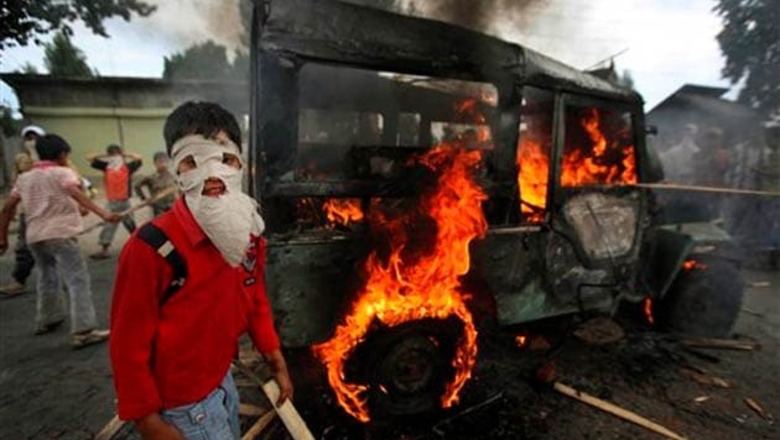
views
New Delhi: Observing that it wanted to "win the hearts and minds" of the people of Kashmir, the government on Friday said it would resume dialogue and asked the separatists, including hardline Hurriyat leader Syed Ali Shah Geelani, to join it.
Hardline separatist leader Syed Ali Geelani, whose Hurriyat group has called for protests and shutdowns, has appealed to the youth to stop violence.
He said violence and stone pelting were not part of the peaceful secessionist campaign launched by his group.
Home Minister P Chidambaram told the Rajya Sabha that the Centre was keen on fulfilling its promises, including on the controversial Armed Forces Special Powers Act (AFSPA) and reduction of security personnel in the state, depending on the situation there.
He said Prime Minister Manmohan Singh would be receiving an all-party delegation from Jammu and Kashmir, possibly next Monday, and that leaders of parties in Parliament would also be called for a meeting.
Chidambaram, who was responding to clarifications sought on his statement on Kashmir unrest made on Wednesday, said Pakistan appeared to have changed its strategy on fomenting trouble in the Valley as it seemed to be now relying on "civilian unrest" for "dividends".
Noting that Jammu and Kashmir had acceded to India in "unique circumstances", he said the state has a "unique problem" and requires a "unique solution".
Chidambaram appealed to all sections to put an end to the cycle of violence and said, "We have to put our heads together to find a solution to the unique problem".
Contending that "it is important to win the hearts and minds of people of Jammu and Kashmir", the Home Minister said, "We will resume the political process. The answer to the problem lies only through the political process, only through dialogue."
He said it was his intention to "do everything possible to resume the quiet dialogue" which he undertook with the moderate Hurriyat leaders before it got interrupted on December 4, 2009 after an assassination bid on one of them.
Meanwhile, curfew continued in Srinagar and in other major towns in the Kashmir Valley on Friday to prevent violent protests that have claimed 50 lives since June. People are facing an acute shortage of essentials in several areas.
Over 250 people, including 90 security personnel, have been injured in clashes between the unruly protesters and security forces.
Sources in the local hospitals said half a dozen critically injured civilians are battling for life.
"Most of the injured have sustained bullet injuries during violent clashes with the security men," hospital sources said.
Shops, markets, banks, post offices, educational institutions, and even government-run retail outlets of essential commodities are closed in curfew-bound areas. Public transport has also been affected.
Residents in old city areas complained of an acute shortage of almost all essential commodities, including baby food, medicines and foodstuffs.
"We have not been able to buy any bread, milk or medicines during the last seven days because of the indefinite curfew," said Nazir Ahmad, 34.
"The ration stocks are also running thin and we fear starvation unless the curfew is relaxed and people are allowed to buy essentials," he added.
Police said curfew was being imposed as the last resort to prevent violence.
"Curfew is imposed only after careful evaluation of the situation. This becomes necessary to protect civilian life and property and is always the last option available to us," another senior police officer said.
Reports from other major towns of the Valley also indicated that security personnel in full gear were enforcing curfew there.
Mobs have been violating the curfew restrictions in many parts of the Valley, resorting to violent protests since last Friday when the fresh cycle of violence erupted.
(with PTI and IANS inputs)














Comments
0 comment